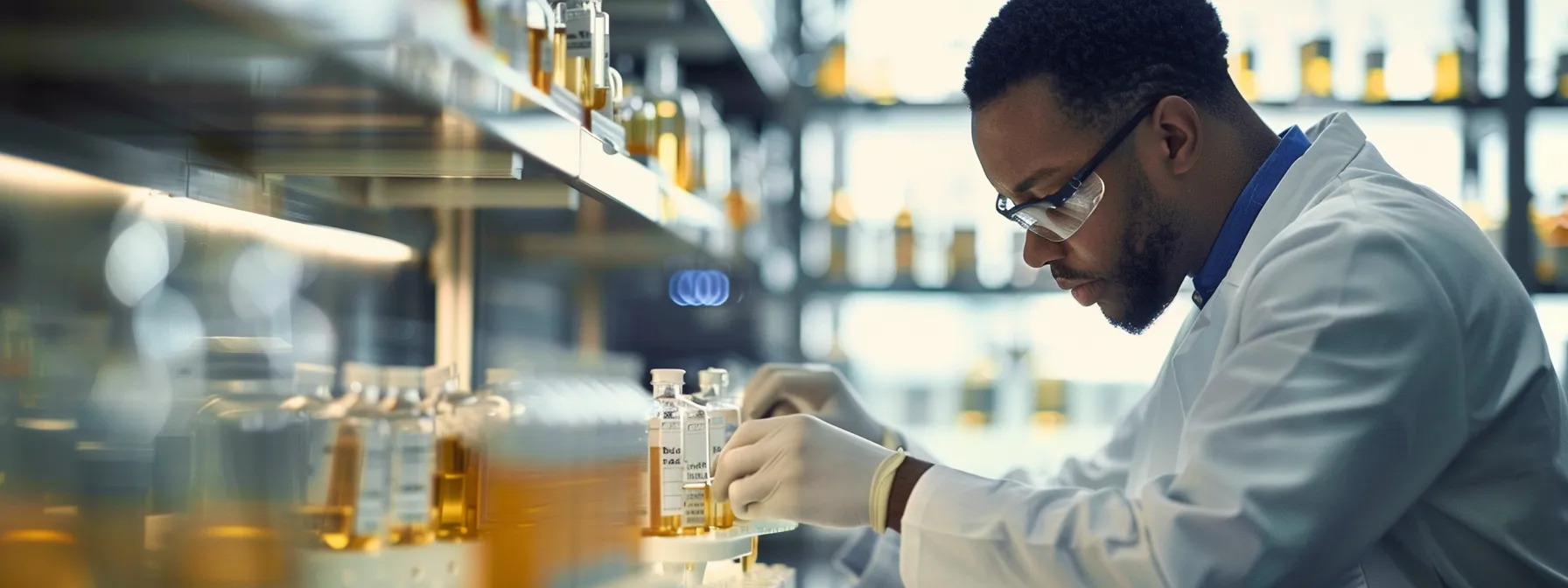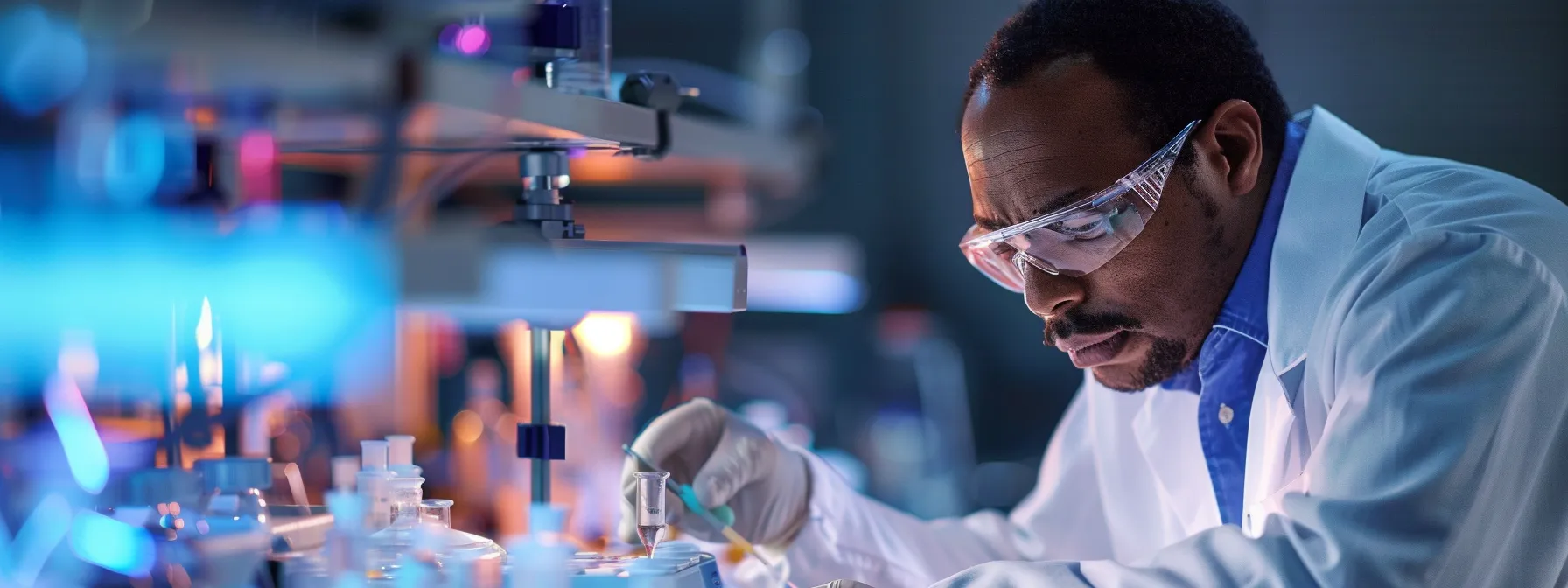The Importance of Sourcing High-Quality IGF-1 LR3 for Biological Studies
The precision of scientific research hinges on the quality of the materials utilized, particularly within the field of biology, where variables can be complex and manifold. Insulin-like Growth Factor 1 Long Arginine 3 (IGF-1 LR3) is a potent research peptide used across various biological studies, including those associated with growth factors and aging. Ensuring the integrity of IGF-1 LR3 is paramount for reliable data and reproducible results. Researchers and institutions must therefore commit to sourcing the highest quality product. Below, we examine the significance of purity, challenges in synthesis, supplier selection, and the forefront of biotechnological advancements concerning IGF-1 LR3.
Understanding IGF-1 LR3 and Its Role in Biological Research

IGF-1 LR3 is a synthetic protein and a more potent version of the endogenous hormone IGF-1. It has been engineered to have a longer half-life and increased potency compared to its natural counterpart, making it a popular subject for scientific inquiry. It primarily functions by stimulating cell growth and has become a critical tool in the study of development, muscle growth, and metabolism.
IGF-1 LR3’s ability to mimic or amplify natural physiological processes gives it a unique edge in experimental settings. Researchers leverage these characteristics to dissect cellular mechanisms, mediate gene expression studies, and orchestrate tissue repair and regeneration protocols. Its versatility in research models underscores its vital role in biological sciences and drug development.
It’s thus imperative that scientists procure their IGF-1 LR3 for Research Use with the utmost confidence in its composition. Failure to do so not only jeopardizes the validity of current research but may also potentially impede pivotal advancements in medical and biological sciences.
The Impact of Purity Levels in IGF-1 LR3 on Experimental Outcomes
The concept of purity in biological reagents like IGF-1 LR3 extends beyond mere percentage points; it is inextricably linked to experimental integrity. High-purity IGF-1 LR3 alleviates concerns of confounding variables and ensures researchers are observing the effects of the peptide alone, separate from contaminants that could skew results.
Impurities within IGF-1 LR3 can range from incomplete peptide sequences to bacterial residues, all of which induce variabilities within an experimental framework. Consequently, impure peptides might trigger unexpected immune responses in subjects or interact differently at cellular receptors, leading to non-reproducible and inconclusive data. This drives home the necessity for rigorous purification processes in peptide synthesis.
During experimental design, scientists must be acutely aware of the purity levels guaranteed by peptide providers. Standards for purity should be uncompromising, as the objectives of the research hinge on the reliability of each component within the study. Fidelity in experimental outcomes is, after all, only as good as the tools and reagents employed.
Challenges and Considerations in Synthesizing IGF-1 LR3

The synthesis of IGF-1 LR3 is a technologically intricate process, requiring sophisticated methods and equipment. One of the primary challenges lies in achieving a highly purified end product, free from contaminants and by-products that could affect its bioactivity. Sophisticated techniques such as high-performance liquid chromatography are essential for identifying and eliminating impurities.
Stability is another consideration for researchers, given the sensitivity of IGF-1 LR3’s structure to environmental factors like temperature and pH. Synthesis must take into account these stability concerns, ensuring that the peptide remains intact and active from production through to research application.
Moreover, the ethical production of IGF-1 LR3 warrants a dialogue about the synthetic practices used by laboratories and manufacturers. There’s a growing need for transparency in the manufacturing processes, which not only enhances the credibility of the product but also promotes trust within the scientific community.
Advancements in the Production of High-Quality IGF-1 LR3 and Its Future in Biotechnology
The landscape of biotechnology is continually evolving, with advancements in production techniques leading to higher-quality IGF-1 LR3. Innovative methods in peptide synthesis are paving the way for peptides that match the industry’s increasing demands for accuracy and replicability. These improvements enhance the utility of IGF-1 LR3 as a tool for cutting-edge biological research.
As genetic engineering and molecular biology techniques become more refined, so too does the potential for custom peptides like IGF-1 LR3. Genomic editing tools like CRISPR offer new ways to understand how growth factors affect cellular functions, with IGF-1 LR3 serving as a key player in experimental setups. This results in more nuanced and potent applications for the peptide.
Altogether, the meticulous sourcing of high-quality IGF-1 LR3 is a foundational aspect of its use in biological research. The caliber of the peptide determines the veracity of scientific findings and the potential for significant breakthroughs. As the production of IGF-1 LR3 advances, it stands poised to support the burgeoning field of biotechnology in unprecedented ways.






